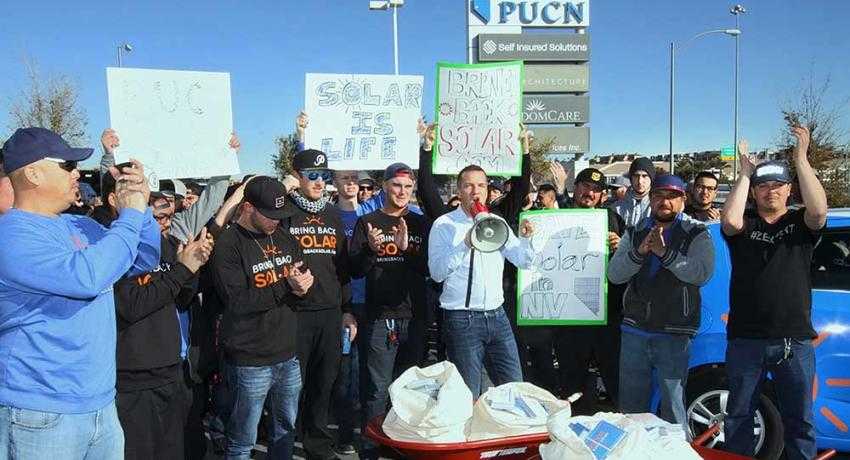If Nevada PUC isn't representing the public ...
If Nevada’s Public Utilities Commission won’t listen to the public, maybe it’s time for a new commission.
It’s a rare thing for three individuals to stand in defiance of the Governor who appointed them, the majority of the legislators whose laws their charged with enforcing, 89 percent of the public they were appointed to protect and even one of the major utility companies they appear to be supporting with their highly controversial decisions.
Still, the three Nevada PUC commissioners stood their ground Feb. 12 and refused to grandfather in the rate benefits the state promised to more than 17,000 utility customers when they invested their hard-earned savings into rooftop solar systems.
Chairman Paul A. Thomsen along with commissioners Alaina Burtenshaw and David Noble voted unanimously (an oddly bold word when referring to a total of three people) in late December to slash net metering benefits and to impose new fees on those utility customers who installed rooftop solar.
While many state PUCs are considering similar changes to policy, most are less severe than those changes approved by the Nevada PUC and none apply retroactively to citizens who have already invested their own money in electricity generation benefiting their utilities’ grids. Such bait-and-switch mid-game rule changes are usually reserved for tyrannical governments in far-away countries with questionable human rights policies.
So, not surprisingly, the decision was met with public outrage. Still, the three have voted (unanimously) twice more since their initial ruling in late December to uphold the decision.
SolarCity, the nation’s largest rooftop solar installer, laid off 550 workers in the state. Other solar companies followed suit.
Hundreds of newly unemployed solar workers along with 17,000 solar customers and another 47,000 or so supporters signed commitment cards for a total of more than 55,000 signatures – the same number needed to put the issue on a referendum ballot in November.
In polls, 89 percent of Nevadans say the PUC made the wrong decision when it voted not to grandfather rates for existing solar customers.
Still, the three PUC commissioners stood their ground. They budged only slightly. Instead of changing the rules on customers over four years, they’ll do it over 12 years.
Since the three are appointed by the governor, the public can’t oust them with a recall vote. The best the public can hope for now, is that Gov. Sandoval, who is elected by the public, will stand by his statement that “There is no greater friend to the solar industry than my administration.”
The governor can’t easily remove members of the PUC. But for the immediate future, asking him to do just that is probably the only way to change out a commission of three people whom the public perceives are not protecting its interests – one of the commission’s primary directives.
In the longer term, there is public discussion about reconfiguring the public utilities commission in the state.
CBS Las Vegas published a story in November broaching the topic. With no direct accountability to the public, why should the regulators be bothered by what 89 percent of the public think of its decision? CBS proposed a system where an equal number of commissioners to those appointed by the governor would be elected.
The PUC in most states is appointed by the governor. There are only 14 states where the public elects the PUC.
Arizona, where the PUC sided with solar customers despite robust spending and aggressive marketing and lobbying efforts on the part of the state’s largest utility, is one of those 14.
Maybe, if the public elects the Public Utilities Commission, it will be more likely to represent the public’s interests.




